Masonry Drilling Tips: Tools & Techniques
Masonry drilling is an important skill in both construction and various DIY projects. This process involves creating holes in materials like brick,...
8 min read
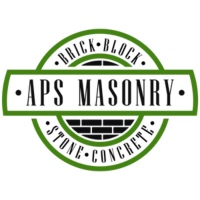 Alec Serowatka
:
Jun 20, 2023 1:56:43 PM
Alec Serowatka
:
Jun 20, 2023 1:56:43 PM
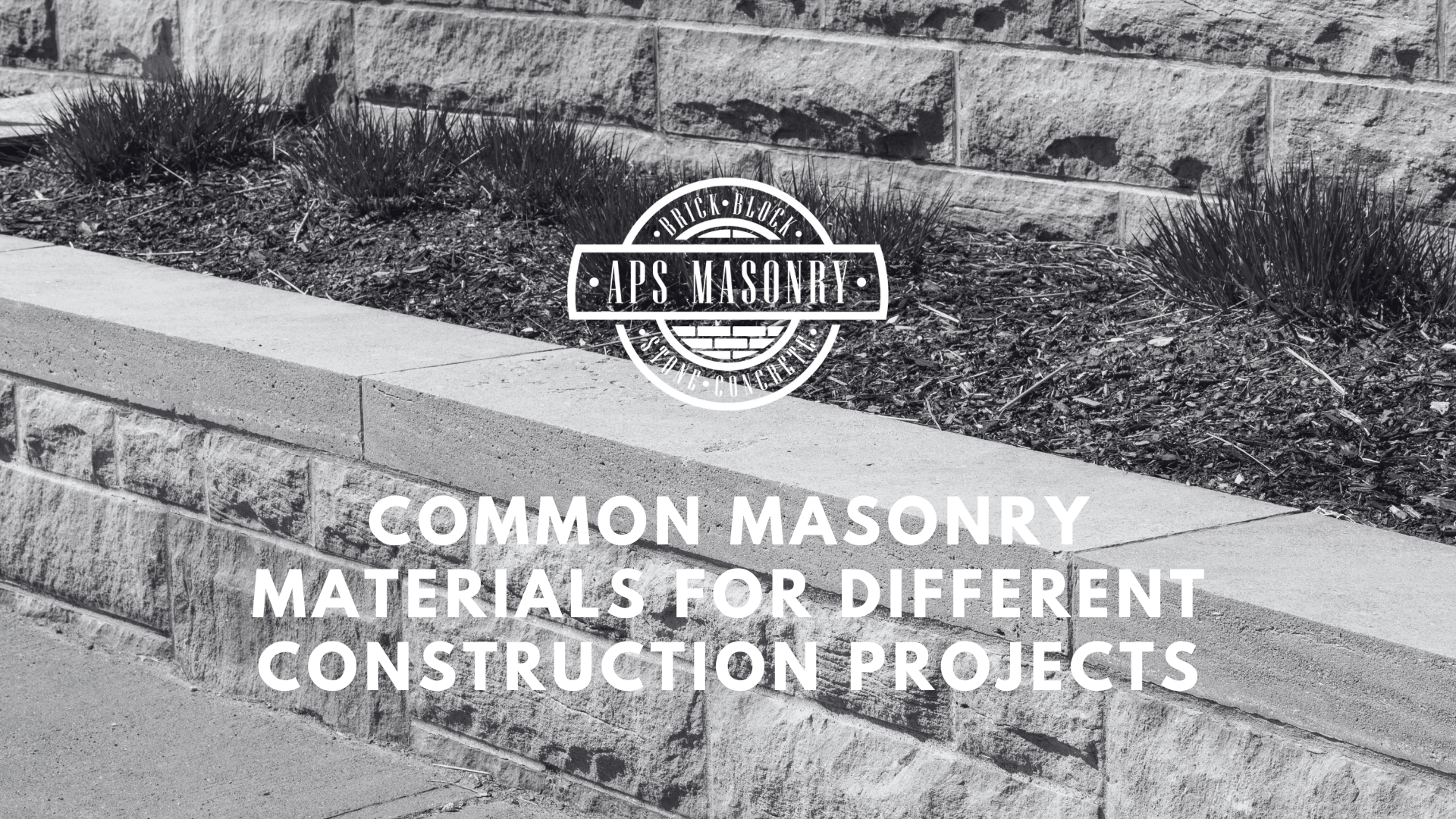
Choosing the right masonry materials is important in guaranteeing a project's durability, strength, and overall success. Masonry work is a technique that involves the use of various supplies and materials bonded together with mortar and has been a cornerstone of construction for centuries.
According to the Mason Contractors Association of America (MCAA), over 70% of the world's buildings are masonry¹.
Common masonry building materials, such as bricks, concrete blocks, and natural stones, offer different characteristics and aesthetics that cater to diverse construction projects. Understanding the qualities and uses of these materials is important for architects, engineers, and contractors, whether they're working on homes, buildings, historical renovations, or landscaping projects.
This article explores the fundamental masonry materials commonly used in different construction projects, highlighting their different properties and the considerations involved in their selection.
The following materials are some of the most common types of building materials used in different types of masonry work:
Brick is highly useful in masonry for several reasons. Bricks are made from clay and are burned at scorching temperatures to gain strength, durability, density, and red color appearance. Brick masonry offer versatility in design, allowing for creative patterns. They provide excellent thermal insulation, enhancing energy efficiency. Bricks are readily available, cost-effective, and easy to handle.
Concrete offers greater strength and load-bearing capacity compared to individual bricks. This makes it suitable for constructing large structures and supporting heavy loads, such as bridges or high-rise buildings. Concrete masonry allows for faster construction as it can be poured into molds or formwork, creating large sections or panels at once. This saves time and labor compared to individually placing and bonding numerous bricks. Concrete also provides better resistance against fire, as it does not combust or weaken as quickly as bricks do under high temperatures.
Concrete blocks are larger than bricks, requiring fewer blocks to cover a given area, resulting in faster construction and reduced labor costs. Concrete blocks also provide excellent fire resistance, making them suitable for buildings requiring high fire protection. Additionally, concrete blocks have better insulation properties than traditional bricks, helping regulate temperature and improving building energy efficiency. They are also more resistant to weathering and deterioration over time.
Granite is a hard igneous rock that is popular in masonry work. Granite offers a distinctive and elegant aesthetic appeal with its natural beauty, intricate patterns, and wide range of colors. This makes it a preferred choice for decorative elements, facades, and interior finishes in masonry houses where visual impact is desired. Granite is also highly resistant to heat, making it suitable for areas with high-temperature exposure, such as fireplaces or outdoor kitchens. Moreover, granite requires minimal maintenance and is resistant to staining, making it a practical choice for surfaces that need to withstand heavy use, such as countertops and flooring.
Stone is a building material that provides natural beauty and a timeless classic look, adding a touch of elegance to any architectural design. Additionally, stone comes in several textures and patterns, allowing for versatile and creative masonry designs. It is often used for retaining walls, facades, and landscaping elements, where its natural appearance enhances the overall aesthetics of the project. Furthermore, stone masonry requires minimal maintenance and is highly resistant to pests and fire. Its strength and stability make it a preferred choice for load-bearing structures, including foundations and structural walls.
Marble is commonly used in masonry projects where striking visuals are prioritized, such as decorative elements, sculptures, countertops, and flooring. Additionally, marble is a highly durable metamorphic rock that can withstand the test of time. Its dense composition makes it resistant to scratches, stains, and impact, ensuring long-lasting beauty and functionality. Marble also offers excellent heat resistance, making it suitable for fireplace surrounds or decorative features in high-temperature areas. It can be polished to a high gloss or honed to a matte finish, providing different options for a final design. However, it's important to note that marble requires regular maintenance, as it is susceptible to etching and staining from acidic substances.
Glass is commonly employed in windows to allow natural light to brighten interior spaces while providing a barrier against the elements. It offers visibility, ventilation, and insulation properties, contributing to building energy efficiency. Glass blocks are another form of glass used in masonry. These blocks provide a combination of translucency and structural support, allowing for the creation of visually striking partitions, walls, or decorative features. They can be used to enhance privacy while still allowing light to pass through. It can be tinted, frosted, or textured to add artistic flair and uniqueness to the overall design.
Stucco is a fine plaster made up of the same ingredients as concrete, plus lime. It is one of the most popular siding options outside a home. Stucco possesses tiny pores that enable the evaporation of water from its rear, preventing the accumulation of moisture and the subsequent risk of rot. Owing to the high level of skill required to apply, Stucco can be a relatively expensive job, but money can be saved over time due to its low maintenance.
Sand plays a crucial role in ensuring the strength and quality of masonry constructions. It is a key ingredient in mortar, which holds masonry units together. Sand also improves the workability and strength of concrete. Additionally, sand is used for creating stable foundations for paving projects. It is also utilized for jointing and pointing to enhance masonry units' structural integrity and appearance.
Adhesive and bonding masonry materials are essential because they provide the necessary strength and stability to masonry structures. These materials ensure that individual masonry units, such as bricks or stones, are securely held together, forming a solid and durable construction.
Mortar is a type of bonding material specifically designed for masonry work. It consists of a mixture of cement, sand, and water, with additional additives sometimes included to enhance specific properties. mortar for masonry acts as the adhesive that binds masonry units, such as bricks, stones, or blocks, together securely and stably. Mortar also helps to distribute the load evenly across the masonry units, reducing stress concentrations and preventing individual units from bearing excessive weight. Resistance to external forces like wind, seismic activity, and settling is crucial, so Mortar fills gaps and reinforces joints, creating a solid structure. It also acts as a protective barrier against water, preventing issues like erosion, decay, and mold growth, thus ensuring the durability and longevity of the masonry.
Rebar is short for reinforcing bar and is commonly used in masonry construction to enhance concrete elements' strength and structural integrity. It consists of steel bars or meshes strategically placed within the concrete to provide reinforcement. Rebar is especially useful in masonry projects where load-bearing capacity and resistance to tension are important. It is commonly used in reinforced concrete foundations, walls, columns, beams, and slabs. The presence of rebar significantly increases the structural strength of these elements, allowing them to withstand heavy loads and resist cracking or collapsing under tension like seismic activity. Many construction regulations mandate using rebar in specific applications to ensure the safety and stability of the structure.
Grout is a bonding agent used in masonry projects to fill the gaps or joints between masonry units, such as bricks, tiles, or stones. It is a mixture of cement, sand, and water, similar to Mortar but with a higher water content, giving it a fluid consistency. Grout enhances the aesthetic appearance of masonry work. It can be customized in color, allowing for seamless blending or striking contrast with the masonry units. Grout also protects against moisture, preventing water infiltration and minimizing the risk of damage from water-related issues, such as erosion or mold growth. Grout is commonly used in various masonry applications, including tile installations, brick walls, stone veneers, and concrete block constructions. It is especially useful in areas subject to frequent exposure to water, such as bathrooms, kitchens, or exterior facades.
In addition to the commonly known materials like bricks, concrete blocks, and stones, several lesser-known materials can be used in masonry work to achieve unique and distinctive results.
Rammed Earth, which involves compacting layers of Earth or soil into solid walls. Rammed Earth offers excellent thermal properties and a natural, earthy aesthetic. It can offer some spectacular and creative finished products with unique layers on display!
The finished cost of Rammed Earth walling depends on various factors but typically ranges between £80 ($100) and £250 ($320)/m2 for a 300 mm thick wall. According to DTi Partners in Innovation Project: 'Developing Rammed Earth for UK Housing,' this cost is competitive compared to quality masonry and other walling finishes.
Chicken mesh is commonly used as a reinforcement material in applications such as stucco or plastering in masonry work. It is fixed to the surface, typically over a layer of mortar or adhesive, before the final coat of stucco or plaster is applied. The mesh provides an additional support layer, helping strengthen the coating and prevent cracking or crumbling. Chicken mesh is particularly useful in masonry projects where the substrate may have slight irregularities, or additional tensile strength is desired. The mesh helps distribute forces and stresses more evenly, increasing the durability and longevity of the stucco or plaster.
Holdfast Clamps are specialized tools for securing and holding stone or masonry pieces in place during construction. They consist of a clamp mechanism attached to a sturdy base or plate. Holdfast clamps are designed to grip and hold onto the edges or corners of stone or masonry units, providing stability and preventing movement or displacement. Holdfast clamps are particularly useful when working with large or heavy masonry pieces that require precise positioning and stability during installation. They help ensure the units' accurate alignment and secure attachment, especially when building stone walls, arches, or columns.
A Concrete Band, or a Concrete Bond Beam, is a horizontal reinforced concrete element incorporated into masonry construction. It serves as a structural component to increase the stability and strength of the masonry walls. Concrete Bands are typically placed within a masonry wall at specific levels, often near the top or bottom and sometimes at intermediate heights. Wall ties should be installed within 12 in. (305 mm) of the top and bottom of the band to help ensure the surrounding masonry is adequately supported, according to the National Concrete Masonry Association². Concrete Bands can serve as load-bearing elements, transferring the weight from above to the supporting walls or columns. They help evenly distribute the loads imposed on the masonry wall, reducing the risk of localized stress concentrations. Furthermore, Concrete Bands can serve as lintels or sills to support openings, such as windows or doors, in masonry walls.
Straw Bales are primarily used in masonry when constructing walls in eco-friendly and sustainable building projects. They offer several advantages regarding insulation, affordability, and environmental impact. One key benefit of Straw Bales is their excellent thermal insulation properties. The natural fibers in the straw trap air pockets provide a high level of insulation and contribute to energy efficiency in the building. Some people may consider Straw Bales a fire risk. Still, research shows that when you stack bales up on a wall and plaster them on either side, the density of the bales is such that there isn't enough air inside them to burn, according to the Association for Environment Conscious Builders (AECB)³.
The best material to use in masonry depends on various factors, such as:
There is no one-size-fits-all answer, as different materials have their strengths and suitability for different situations.
Brick is by far the most common material used in masonry construction projects. Brick homes command an average 6% higher resale price than non-brick homes!⁴
Natural stones add a timeless and elegant aesthetic to masonry work. However, the cost of constructing a stone wall is significantly more.
Natural rock wall $25 – $75 $2,500 – $7,500
Stone fence $25 – $35 $2,500 – $3,500
Dry stack stone wall $20 – $60 $2,000 – $6,000
Stone retaining wall $10 – $85 $1,000 – $8,500
Interior stone accent wall $10 – $45 $1,000 – $4,500
Stone driveway pillar (each) $1,300 – $3,000
*For 100 square feet of wall surface.
Courtesy of HomeGuide.com
Whichever materials you decide, it is always best to discuss your options with a professional team so they can offer their experience and knowledge of what may work best in your situation.
What are General Contractors?
General contractors are professionals responsible for overseeing construction projects from start to finish. They manage various aspects of the project, including:
What are some popular masonry products used in construction projects?
Common masonry products include bricks, concrete blocks, natural stones, granite, marble, and glass blocks, among others.
What are pavers, and how are they used in landscaping?
Pavers are durable, versatile materials for creating driveways, walkways, patios, and other outdoor surfaces. They come in various colors, shapes, and textures, offering endless design possibilities.
What considerations should homeowners keep in mind when planning a masonry project? When planning masonry projects, homeowners should consider budget, design preferences, maintenance requirements, and local building codes. Consulting with experienced contractors and architects can help homeowners make informed decisions.
Where can I find a reliable supplier of masonry products in my area?
You can find reputable suppliers of masonry products through online directories, referrals from contractors or architects, or by visiting local home improvement stores specializing in construction materials.
What colors do masonry products typically offer?
Masonry products come in various colors, including earth tones, neutrals, bold hues, and custom blends. Homeowners and designers can choose colors that complement the building's exterior or interior aesthetics.
Masonry Facts, Mason Contractors Association of America
https://masoncontractors.org/facts/
Concrete Bands, National Concrete Masonry Association
Straw Bales, Association for Environment Conscious Builders (AECB)
Brick homes, Mason Contractors Association of America
https://masoncontractors.org/facts/
Stone Wall Cost in Philadelphia, HomeGuide
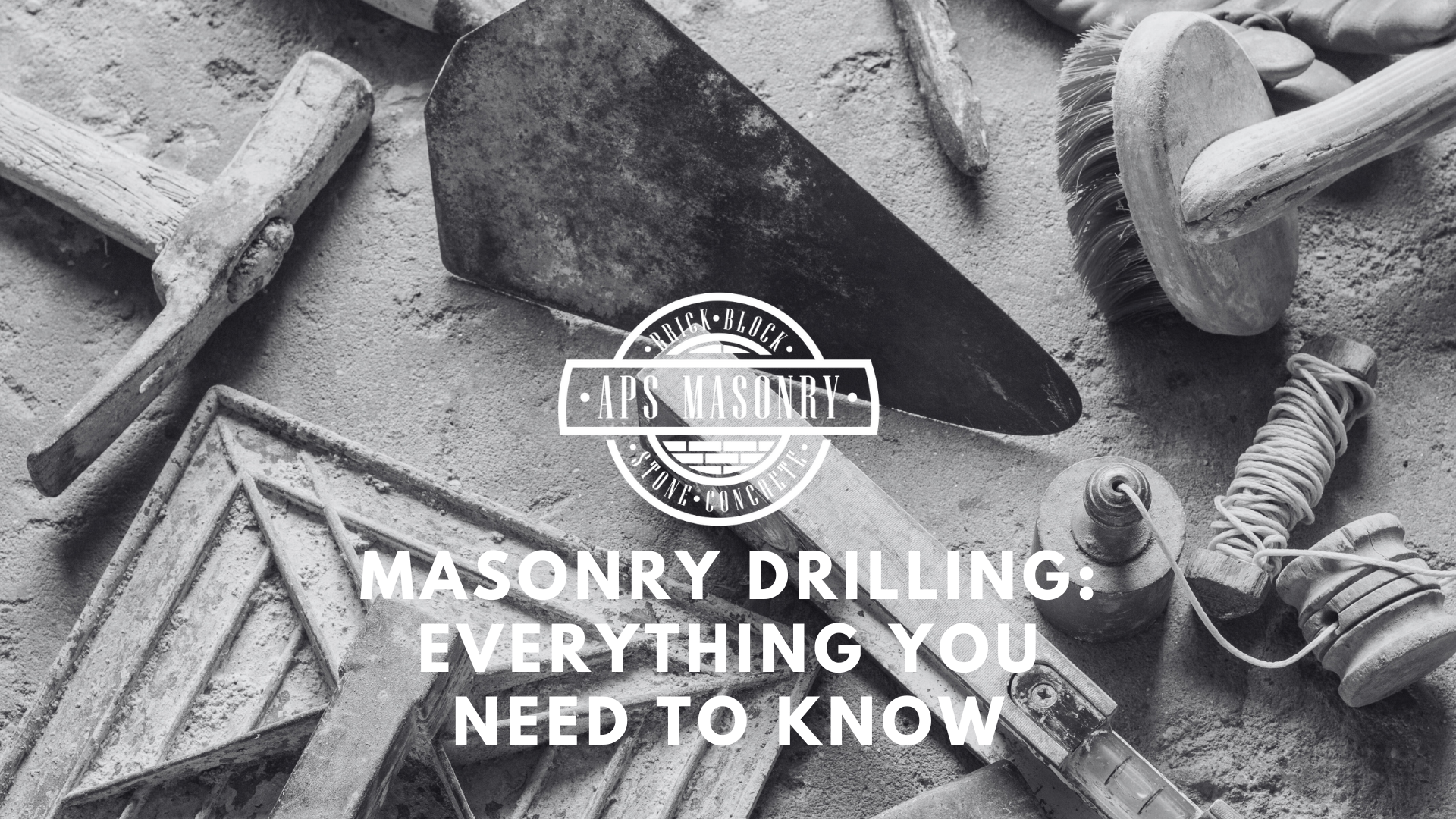
Masonry drilling is an important skill in both construction and various DIY projects. This process involves creating holes in materials like brick,...
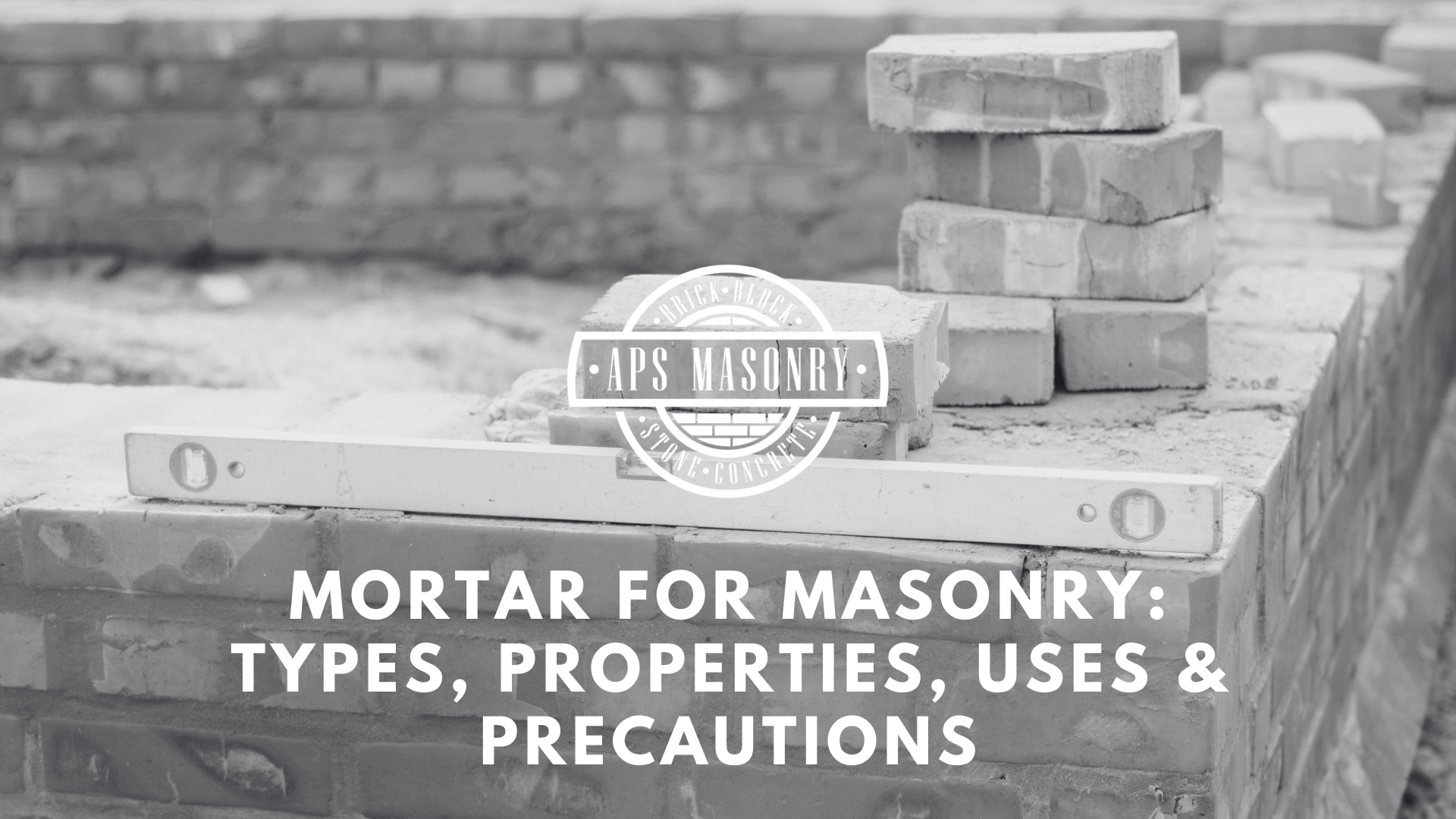
Mortar is a necessary building material that helps stick bricks, stones, or concrete blocks together to form sturdy structures. There are different...
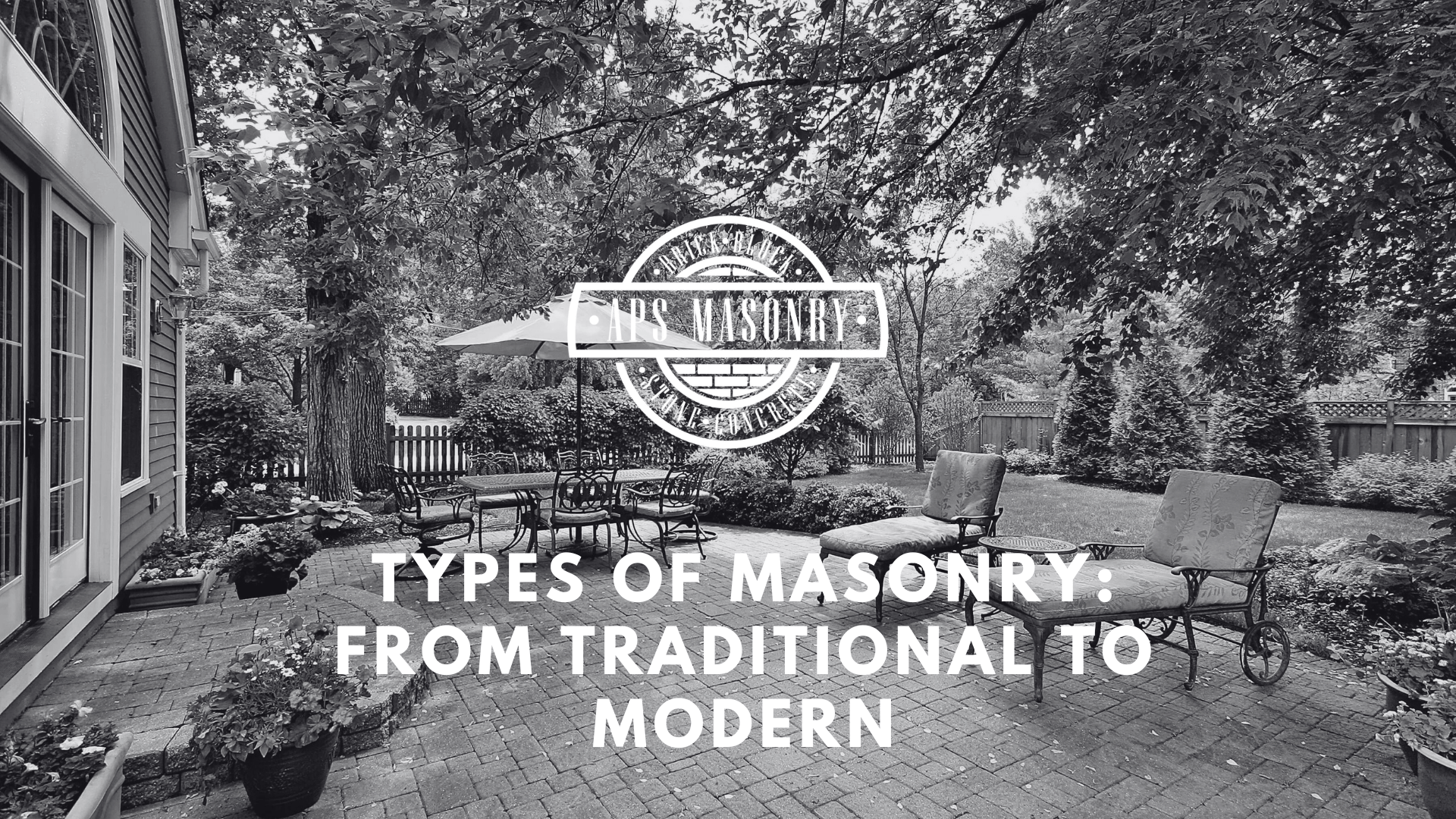
Let's explore the evolution of masonry from traditional to modern methods, catering to diverse construction needs. It covers how old techniques...